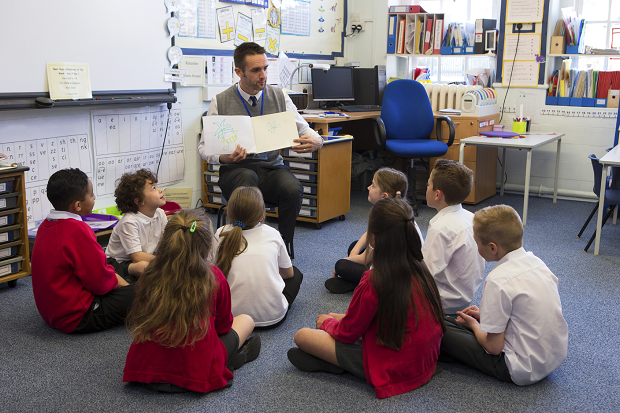
Today’s Education in the media blog focuses on school funding, special needs support, rising standards in primary schools and celebrating the social work training programme.
School Funding
Today, Wednesday 5 September, the Mirror published an article about school funding.
The average primary school class is receiving £132,000 this year, up from around £124,000 a decade ago and £84,000 in 2000 – all in today’s prices.
Children at GCSE age will also have seen investment of over £65,000 across their education since the age of 3. This is double the funding their parents’ generation would have received. The National Funding Formula provides for cash increases for all schools, and means that underfunded schools are allocated rapid increases of 3% per pupil per year.
We have published the School Resource Management strategy to help schools manage cost pressures. This is published online here.
A Department for Education spokesperson said:
There is more money going into schools than ever before. School funding will rise to a record £43.5 billion by 2020 – 50% more in real terms per pupil than in 2000 – and we are protecting the base rate of funding for 16 to 19-year-olds until 2020 to ensure every young person can access the education or training needed to go on to university, apprenticeships or work.
Academic standards are rising in our schools, with 1.9 million more children in good or outstanding schools than in 2010. In the same period, we have seen the attainment gap between disadvantaged pupils and their more affluent peers reduce across all stages of education - 14% in the early years, 10% in primary, 10% in secondary.
We recognise that we are asking schools to do more which is why the Education Secretary has set out his determination to work with the sector to bear down on cost pressures - and just this week we published the School Resource Management strategy to help schools reduce the £10 billion non-staffing costs spent across England last year.
SEND Support
Today, Wednesday 5 September, the National Association of Head Teachers (NAHT) published its report on support and funding for children with special educational needs and disabilities (SEND). This was covered by the Guardian, the Independent and the Times.
We are investing £25 million in funding with the aim of helping schools to prioritise SEND support and deliver high-quality teaching to all pupils. We want to create better link between mainstream and special education, as well as support local areas to improve joint work across agencies.
We also recognise the real pressures on services such as social care, which is why local authorities have been given access to £45.1 billion in 2018-19 and £45.6bn in 2019-20; an overall increase since 2017-18 of £1.3bn.
Minister for Children and Families Nadhim Zahawi said:
We have undertaken the biggest special educational needs reforms in a generation, including the introduction of Education Health and Care plans, so that support is tailored to the needs of individuals and families are put at the heart of the process.
We recognise that there is increasing pressure on schools and on high needs budgets, which is exactly why funding is rising to meet this. Core schools funding is increasing to £43.5bn by 2020 – that’s 50% more per pupil in real terms than in 2000 – and within that total the high needs budget is £6 billion this year – the highest on record.
Frontline Programme
Today, Wednesday 5 September, the social work training programme Frontline, will celebrate its fifth anniversary and along with it, their 1,000th participant in the programme.
Frontline launched its social work training programme in 2013. Since then, 356 social workers have qualified through the programme. A further 265 are expected to qualify shortly, and 340 joined the programme this summer. Including those that started but are yet to complete the programme, the total number of participants is over 1,000.
Education Secretary Damian Hinds said:
The role that social workers play in our society couldn’t be more important – they make a real difference to the lives children and families who find themselves in some of the most difficult circumstances.
Programmes like Frontline are helping thousands of children and families get the care and support they need and we will continue to support programmes that raise the quality of social work and help develop the next generation of leaders in the profession.
Key Stage 2 Results
Yesterday, Tuesday 4 September, the Department published the latest breakdown of data from this year’s Key Stage 2 National Curriculum Tests.
The data shows that sponsored academies are helping drive up standards in primary schools. At converter academies open for one year, 65% of pupils reach the expected standards in reading, writing and maths; this figure rises to 71% in converter academies open for seven years. At sponsored academies that typically converted because of poor performance, those that have had academy status for one year saw 53% of pupils meet the expected standards in reading, writing and maths, rising to 62% after seven years
School Standards Minister Nick Gibb said:
Today’s results show how well schools have adapted to the higher expectations and greater challenge of the new primary curriculum. In the first SATs that tested pupils’ achievements in 2016, just 66% reached the expected standard in reading. Today that figure is 75%.
Standards are rising in our primary schools and pupils starting secondary school for the first time this week will be better prepared for its new challenges than ever before.
You can read a full report about the results here.